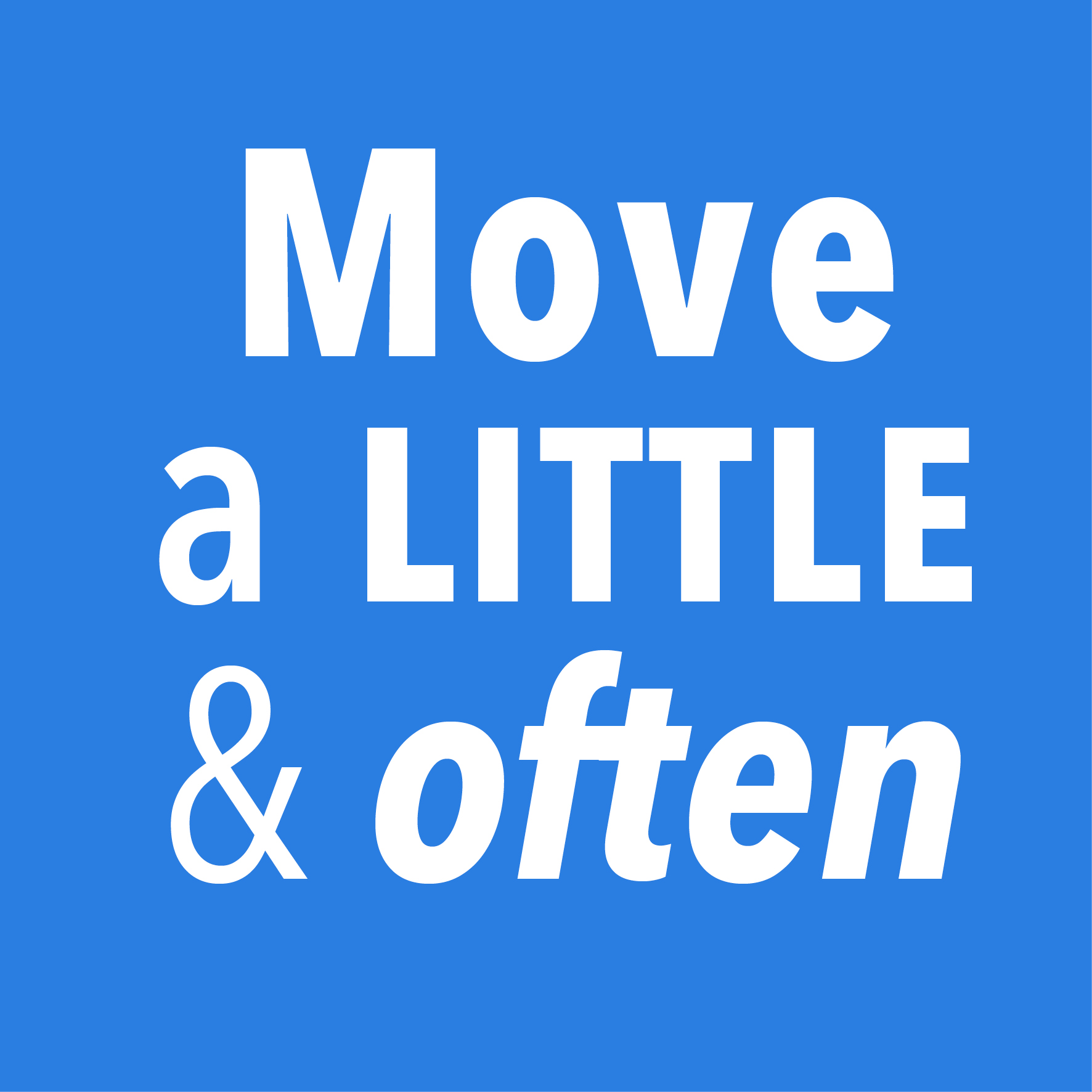Why you should try to Move a Little & Often when you have low mood & physical health conditions
Isabel Adeyemi, PhD Student, University of Manchester
In the first year of my PhD, my focus was on increasing physical activity in people with low mood and long term physical health conditions. Since then, I have carried out an interview study. I met with people with these conditions to understand both what helps them to be more physically active and what gets in the way. The interview study changed the focus of my PhD. Instead of “increasing physical activity”, the focus is to reduce the time that people spend sitting down or lying down during the day. There are two main reasons for this change:
- Firstly, people with long term physical health conditions and low mood say that they spend a lot of time sitting or reclining, for example to help them cope with pain, fatigue, feeling low, and/ or other challenges to moving. But there is a problem with this: spending long periods of time sitting or lying down during waking hours is harmful to our health.
- Secondly, asking a person to “increase their physical activity” may lead that person to think this only relates to exercise. Exercise is very helpful, but it is also worth bearing in mind that one hour of exercise does not necessarily mean that you are active for the remaining hours of the day. For some, over-exerting themselves, either through exercise or through typical day to day activities, can mean that they then spend a lot of time sitting or lying down to recover.
Whether you exercise a lot, very little, or not at all, breaking up long periods of sitting or lying down during the day can help your emotional and physical wellbeing. You can break up these periods by moving a little more often. This can be anything from standing up to walk around your living room to doing a hobby that requires you to move around a bit more.
I am now running the final study of my PhD research and I am looking for volunteers to trial and help evaluate an approach to “Move a Little & Often”. The approach involves providing people with some advice on how they could think about moving a little and often, and involves connecting people who have a shared experience of low mood, pain, fatigue, regardless of their physical health condition. If you would like to find out more, please visit my study page. The link to the participant information sheet can be found here, and if you would like to take part in the study, you can complete a consent to contact form online. If you have any questions, you can contact me on the telephone number or email address below.
Lastly, although the interview study helped me to realise I need to change my research focus, I had the help of patient and public involvement contributors to think about how best to do this. I would like to thank Patient and Public Involvement contributors Carole Bennett and Martin Rathfelder for their support and input into aspects of this PhD research. I would also like to thank those who came to my Patient and Public involvement event in August 2016, to hear about the findings of my interview study and to discuss ideas on how to translate my findings into practical messages that would have meaning for patients.

If you have any questions about the study, you can contact me on:
Isabel Adeyemi
Email: dailyactivitystudy@manchester.ac.uk
Telephone number: 0161 275 7664
If you would like an overview of the PhD study in its entirety, please have a look at my first blog, here.
Date Published: 28/09/2018